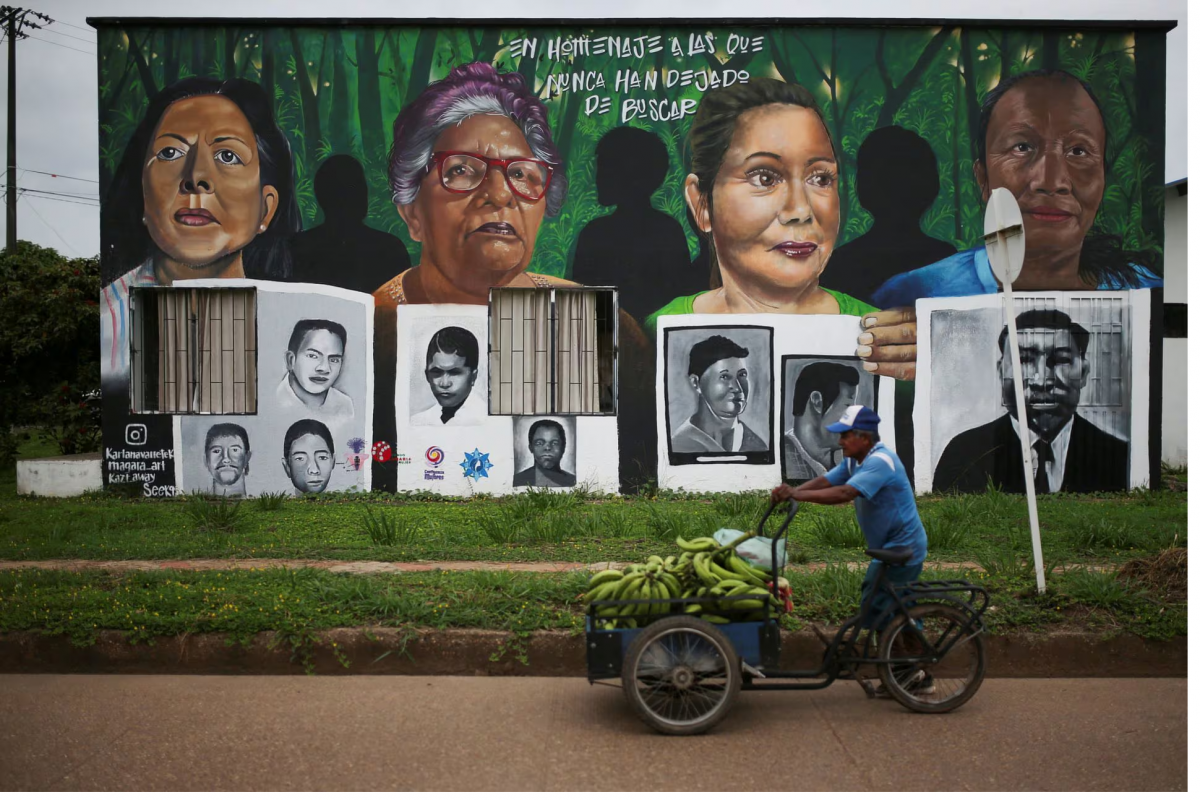SAN JOSE DEL GUAVIARE, Colombia (Reuters) – It will be difficult for the Estado Mayor Central (EMC) armed group to sign a peace deal with the Colombian government before President Gustavo Petro finishes his term in 2026, despite trust between the two sides, a major leader of the EMC told Reuters on the sidelines of peace talks.
The EMC – founded by former members of the Revolutionary Armed Forces of Colombia (FARC) rebels who reject the 2016 peace deal signed by that group – began its own talks with the Petro government last year, in a bid to end its part in Colombia’s 60 years of war.
“A signing as such will take a long time,” Alexander Diaz Mendoza, the second-in-command of the EMC, better known by his nom de guerre Calarca Cordoba, said in a interview last week in San Jose de Guaviare, the provincial capital where the two sides are meeting.
“I would say no,” Calarca said when asked if it was possible for a deal to be signed during the administration of Petro – a leftist and former member of a rebel group whose key campaign promise was to negotiate peace or surrender deals with armed groups.
Calarca’s comments are the latest to pour cold water on Petro’s hopes of ending Colombia’s conflict – which has killed at least 450,000 people – and turn the country toward tourism, renewable energy and social equality.
Though an end to the conflict should be negotiated, it would need the support of wider Colombian civil society to be successful, Calarca added. Meanwhile, arms remain the leverage to guarantee dialogue, he said.
Petro’s government is also holding talks with the National Liberation Army (ELN) rebels, and is in initial dialogue with the Segunda Marquetalia, a group founded by former FARC who first accepted the 2016 deal and then returned to arms.
The EMC, ELN, Segunda Marqutalia and armed groups like the Clan del Golfo often fight each other for control of illicit income streams like drug trafficking and illegal mining. Violence in many parts of Colombia has continued despite ongoing bilateral government ceasefires with the EMC and the ELN.
Calarca ruled out a multilateral ceasefire between the EMC and other groups, as proposed recently by the government.
“I can’t imagine how President Petro could intertwine all the (peace) processes. We see a great challenge because those groups are in territories where we are too,” Calarca, dressed in civilian clothing, said at the hotel where he is staying during negotiations.
“We will not hold a multilateral ceasefire,” Calarca said, specifically rejecting such a move with what he called “paramilitary groups.”
The EMC’s ceasefire with the government is set to last through July.
The group has about 3,500 members, including about 2,200 combatants, and has also agreed at the talks to suspend kidnappings, a method used by some of Colombia’s guerrilla groups to fundraise money.






